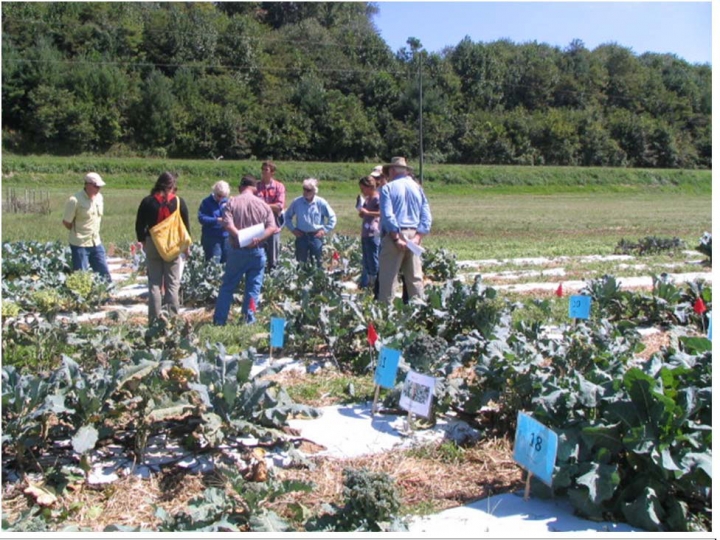Seeding a Culture of Innovation in Organics: Farmer-led breeding of peppers, broccoli and cucumber
This project supports three breeding projects in cooperation with the Ecological Farmers Association of Ontario’s Farmer-Led Research Program. All three projects focus on providing best practices to adapt to climate change by breeding varieties that are locally adapted to low-input organic systems for southern Ontario and the US northeast and meet identified needs of organic growers in the region. By supporting farmer-led breeding efforts for organic production, this project also contributes to an emerging but critically under-researched area of vegetable farming.

 There is high demand for organic broccoli in the Southeast, as shown in a 2013 market survey by Carolina Farm Stewardship Association, which revealed that broccoli is one of the top organic produce items in short supply. Broccoli can be produced most anywhere in the spring and fall, but summer production is limited to cooler growing areas.
There is high demand for organic broccoli in the Southeast, as shown in a 2013 market survey by Carolina Farm Stewardship Association, which revealed that broccoli is one of the top organic produce items in short supply. Broccoli can be produced most anywhere in the spring and fall, but summer production is limited to cooler growing areas.